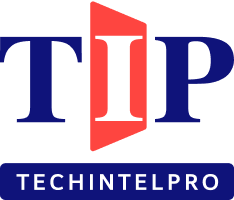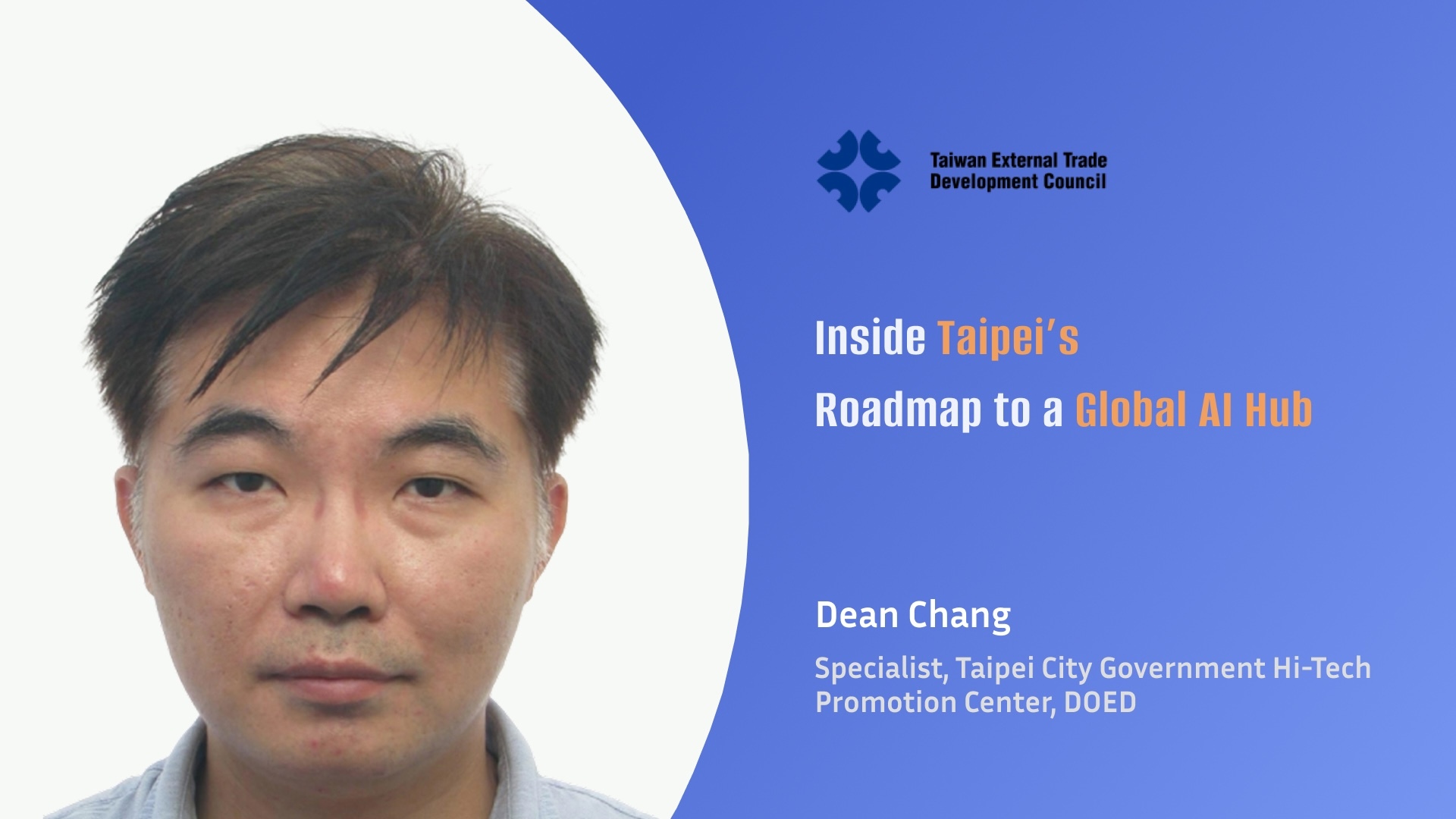

Behind every smart city is a vision that connects policy, innovation, and people.
Dean Chang, Specialist at the Taipei City Government Hi-Tech Promotion Center, Taiwan, highlighted the theme “AI-driven, Future Taipei" at Tech Week Singapore 2025. In an exclusive conversation, he shared how Taipei is turning its semiconductor leadership into an AI-powered economy. He further talked about how the city is using AI in public services and empowering startups globally.
With its robust technological foundation, highly skilled talent pool, and international environment, Taipei has demonstrated strong potential for AI development. The city government will continue to foster a sustainable and globally connected AI ecosystem through policy guidance and cross-sector collaboration. The key strategies are as follows:
In 2024, the Taipei City Government took the lead nationwide and remains the only local government in Taiwan to establish the “Guidelines for the Use of Artificial Intelligence by the Taipei City Government.” These guidelines provide clear operational procedures and standards, encouraging civil servants to boldly experiment with integrating AI into municipal governance and public services. At the same time, they ensure the safe and responsible use of AI technologies, including safeguarding personal privacy and preventing inappropriate content. In practical applications, for example, the “1999 Citizen Hotline” has incorporated AI technology to automatically convert speech to text, perform real-time searches, and respond to citizens’ inquiries, significantly shortening processing times and reducing manpower requirements.
For example, the Fire Department uses AI technology to support disaster relief decision-making, significantly reducing response times and ensuring that residents in remote or disadvantaged areas also enjoy timely and safe public services. This approach ensures that the benefits of AI are not limited to large enterprises or the tech community, but extend to every citizen.
Taipei boasts the most concentrated education and research resources in the nation, with 25 universities and colleges in the city that produce over 42,000 higher education graduates annually, providing businesses with a stable and high-quality talent pool. At the same time, Taipei has gathered core strengths in software development, cloud computing, data applications, and corporate headquarters operations, forming a complete AI innovation and application ecosystem, along with a one-stop, customized investment service platform for enterprises. Technology giants such as Google, Microsoft, and NVIDIA have established presences here, fostering technological exchange.
The Taipei City Government’s theme for Singapore Technology Week 2025 is “AI-driven, Future Taipei.” This phrase embodies Taipei’s commitment to making artificial intelligence the core driver of the city’s digital transformation and innovative development. As the world enters the era of smart technology, Taipei is actively building a highly efficient, sustainable, and people-centered smart city. By integrating AI technologies into areas such as transportation, healthcare, environmental protection, and public services, the city aims to create a safer, more convenient, and smarter living environment for its citizens. “AI-driven, Future Taipei” is not only a vision but also a concrete guide for action, demonstrating Taipei’s firm steps toward becoming a leading global smart city.
Dean Chang is a Specialist for Taipei City Government Hi-Tech Promotion Center, Department of Economic Development. He brings over a decade of experience in Taiwan’s public sector, specializing in policy planning, cross-departmental coordination, and the advancement of high-tech industries. With expertise in policy communication, project facilitation, data analytics, and business consulting, he has a proven track record of bridging government, industry, and academia to accelerate innovation.
Dean's work supports Taipei’s ambition to position itself as a leading hub for technology and artificial intelligence in Asia, aligning with Taiwan’s broader efforts to transform its semiconductor leadership into a foundation for the AI economy.
Taiwan External Trade Development Council
Founded in 1970, the Taiwan External Trade Development Council (TAITRA) is Taiwan’s foremost nonprofit trade promotion organization. Backed by the government, industry associations, and major commercial groups, TAITRA supports Taiwanese companies in expanding their global reach through exhibitions, trade missions, market intelligence, and networking. Headquartered in Taipei, TAITRA operates a global network of more than 60 offices worldwide.
Learn more at: https://www.taitra.org.tw/en/